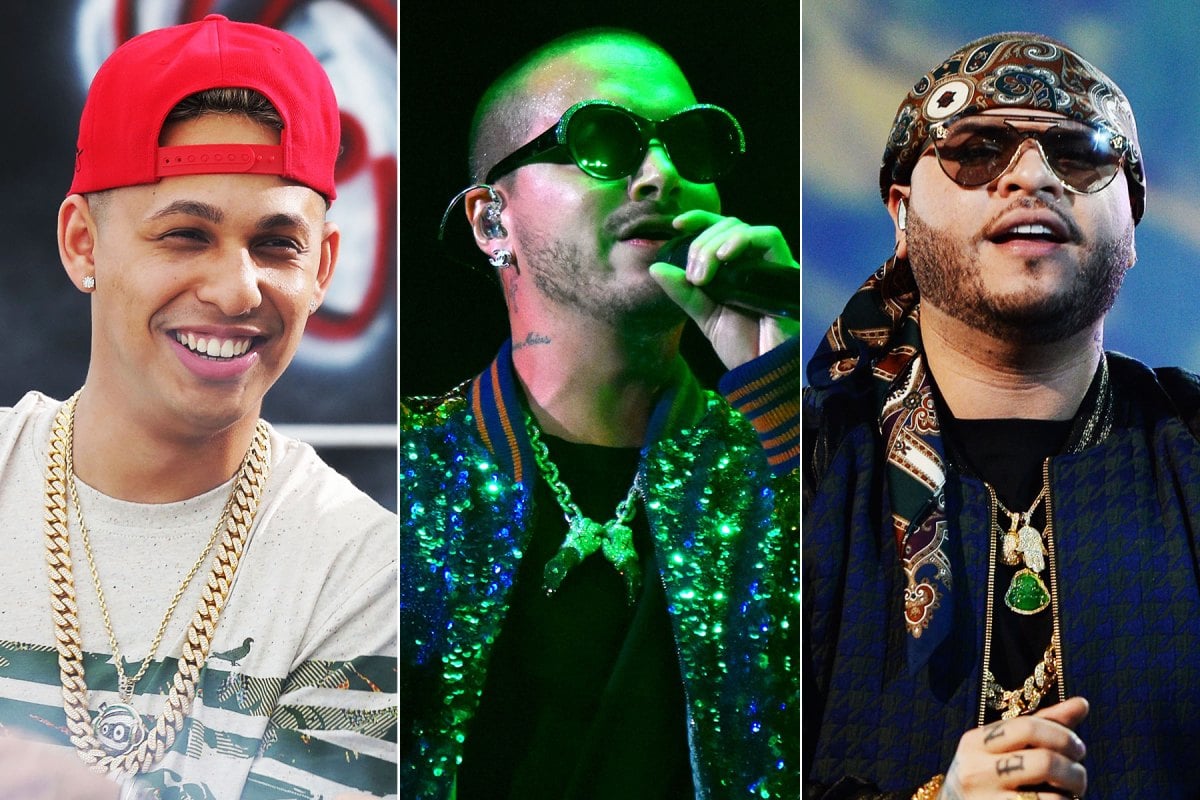Reggaeton, Reggae-Dancehall Collaborations: From Clashing To Cashing

“Collaboration over clash, lets go get the cash”
Words attributed to Sean Paul as he simplified the need for more collaborations among dancehall artists. His latest album has fifteen hardcore Dancehall collaborations. Sean has been advocating for Dancehall unity as a way to develop the genre.
Along with Sean Paul, top dancehall producer Rvssian has led the pack of Jamaicans who are reaping huge benefits from collaborations.
Rvssian’s music has been streamed over one billion times on YouTube. His top song Krippy Kush featuring reggaeton artists Farruko, and Bad Bunny has seven hundred million-plus streams and the remix featuring Nicki Minaj and Travis Scott has over one hundred million.
Rvssian, best known in Jamaica for producing Vybz Kartel’s hits such as the “Clarks” remix and Straight Jeans And Fitted was already a Jamaican superstar by that achievement.
According to IFPI’s global music report, Latin America the fastest-growing region globally in music (15.9%) as streaming revenues grew by 30.2% and
accounted for 84.1% of the region’s total revenues.
Other than proximity, Jamaica shares a cultural relationship with Latin countries like Costa Rica and Panama. Originally Jamaican migrants in these countries started to do the dancehall-reggae music in Spanish and called it Reggae en Espanol.
What is known as Reggaeton, however, was developed from the Bobby Digital’s Kukumkum Dancehall beat, and the song Dem Bow by Shabba Ranks on his Just Reality 1990 album. Dem Bow sampled from Poco Man Jam, a 1989 record by the Jamaican vocalist Gregory Peck, produced by Steely and Clevie.
Shabba Ranks himself once dominated the music industry. After winning two Grammy awards for Best Reggae Album, he was mercilessly renounced by the international media, when he went on the British television program and uttered anti-gay sentiments. The television show host abruptly ended the interview in disgust and cried shame on Shabba for his sentiments on the program. Shabba’s international career was never the same after that interview.
Dem Bow, however, has inspired a plethora of remixes across the Latin American communities in Puerto Rico and New York. The wider Latin communities have a population surpassing 500 million and they have all but completely erased Shabba Ranks’ original anti-establishment messages to place Reggaeton at the top of the international charts.
I Like It Like That by Cardi B went straight to number one on the Billboard 200 chart. J Balvin went platinum within a day with his Reggaeton album Vibras. Meanwhile Bad Bunny and Casper have been at the top of the YouTube charts for years with billions of streams.
Rvssian’s code-switching is part of his musical mastery that has produced multiple hits. He can be seen sporting different hair colors and posing beside Italian sports vehicles tantamount to the American pop culture and way of life. A distance away from the violence, gun touting images, and interchangeable skin color some Jamaican artists fashion.
If more Jamaican artists would expand their cultural citizenship and understand the cultural languages across the world, they would see much better results in their streams than they do going at each other.
Perhaps no other person has used code-switching more than former President of the United States, Barack Obama. His multi-ethnic background and his social intelligence has allowed him smooth transitions from moment to moment during his White House tenure.
When he came to Jamaica, he greeted the audience filled with young students “Wah gwan Jamaica”. He did the same in Cuba and it immediately softened the communist audience to him even if they had problems with his content and policies.
Code-switching is an art within itself and can help artists to solve complex marketing and financing problems.
When Jay Z said “I’ll show you how to move in a room full a vultures” that was his admission to code-switching to get ahead and stand out in a crowd. The now billionaire has proved that reading the room is how you maneuver problematic situations.
Giving power to people by speaking their language makes you likable and wins you, friends. On the contrary, as in the case of Shabba, artists showing off their lack of interest in learning new cultures and ways to communicate create distances and coldness between them and their potential audiences.
Melody, code-switching, and collaboration are the most important tools for artists to succeed in the streaming era.
Spotify’s Reggae-ton playlists that were initially curated for a niche market are one of the most-streamed globally because of code-switching and melody.
Spotify’s Head of Global Cultures, Rocio Guerrero said via splinterners.com that “the Reggaeton genre today is bigger than any other Latin genre and it is being played in Singapore, London, all over the world by even non-Latin people.”
With Reggaeton’s trending successes and full integration into the industry, Guerrero attributes that to the genre’s shift to a more melodic sound and ‘women seducing lyrics’.
Dancehall-reggae music has melody and singers like Dexta Daps and Tarrus Riley do make songs with “women seducing lyrics”. However, active consumption for the genre on Spotify has been low and much lower on the Billboard charts in the past decade. The genre has not been able to make superstars as quick as Reggaeton. Building that musical bridge with more cross-cultural collaborations, moves dancehall-reggae music from a niche genre. Artists would start to swim upstream and make their way back on the Billboard charts.
Reggaeton has created for itself an audience with hundreds of millions of people ready to digest its addictive qualities because it fuses hip hop, reggae and the latin influences. All put together, the potential audience reach includes people with the power to pay for streaming services and buy concert tickets. The two most important metrics in the music industry.
Donovan Watkis is the creator and host of World Music Views.
Listen to World Music Views Podcast on Spotify.
Follow @jrworldmusicv and @jrwatkis on IG.
Email: worldmusicviews@gmail.com
